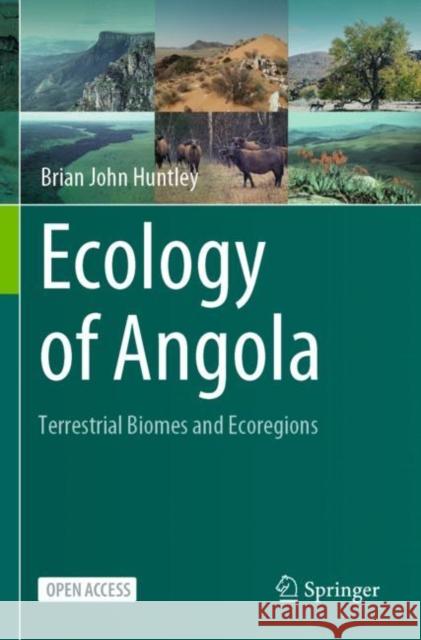Ecology of Angola: Terrestrial Biomes and Ecoregions » książka
Ecology of Angola: Terrestrial Biomes and Ecoregions
ISBN-13: 9783031189258 / Angielski / Miękka / 2023 / 458 str.
Ecology of Angola: Terrestrial Biomes and Ecoregions
ISBN-13: 9783031189258 / Angielski / Miękka / 2023 / 458 str.
(netto: 153,32 VAT: 5%)
Najniższa cena z 30 dni: 154,18
ok. 16-18 dni roboczych.
Darmowa dostawa!
This open access book richly illustrates the first, and comprehensive, account of the country’s biomes and ecoregions, the driving forces that account for their diversity and vulnerability, and the ecological principles that provide an understanding of the patterns and processes that have shaped landscapes, ecoregions, and ecosystems. Angola encompasses the greatest diversity of terrestrial biomes and is the second richest in terms of ecoregions, of any African country. Yet its biodiversity and the structure and functioning of its ecosystems are largely undocumented. The author draws on personal field observations from over 50 years of involvement in ecological and conservation studies in Angola and across Southern Africa. The vast recent literature published by researchers in neighboring, better resourced countries provides depth to the accounts of ecological principles and processes relevant to Angola and thus contributing to the understanding and sustainable management of its natural resources.
This open access book richly illustrates the first, and comprehensive, account of the country’s biomes and ecoregions, the driving forces that account for their diversity and vulnerability, and the ecological principles that provide an understanding of the patterns and processes that have shaped landscapes, ecoregions, and ecosystems. Angola encompasses the greatest diversity of terrestrial biomes and is the second richest in terms of ecoregions, of any African country. Yet its biodiversity and the structure and functioning of its ecosystems are largely undocumented. The author draws on personal field observations from over 50 years of involvement in ecological and conservation studies in Angola and across Southern Africa. The vast recent literature published by researchers in neighboring, better resourced countries provides depth to the accounts of ecological principles and processes relevant to Angola and thus contributing to the understanding and sustainable management of its natural resources.











